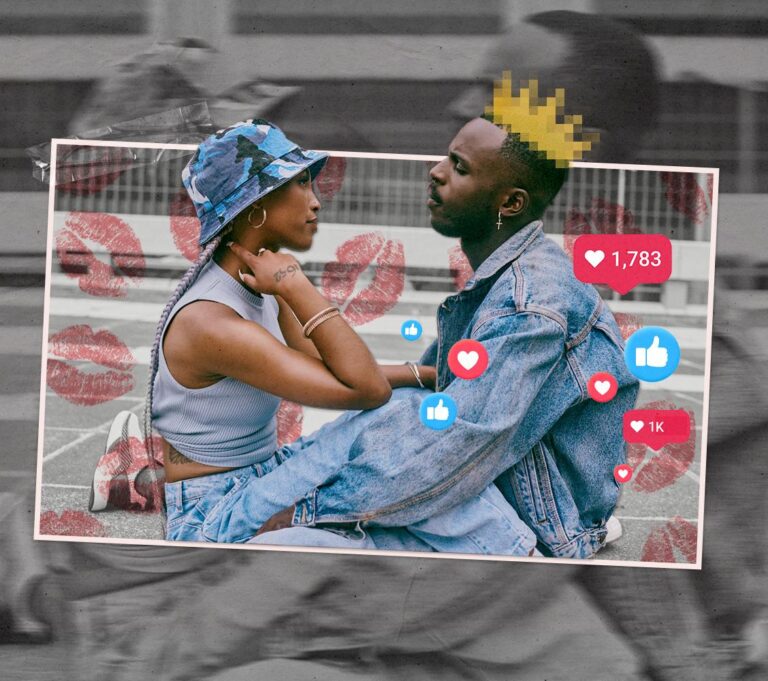A new dating trend known as “throning” is raising concerns about the impact of social media on Gen Z’s romantic lives. Defined by the practice of publicly showcasing a romantic partner in online posts while simultaneously engaging in secrecy or emotional distance offline, throning reflects a growing phenomenon where relationships are curated more for digital validation than genuine connection. As this trend gains attention, questions are mounting about whether social media platforms are undermining the authenticity and intimacy of modern romance among younger generations.
Throning Defined Exploring the Emotional Impact on Gen Z Relationships
At its core, ‘Throning’ refers to the painful experience where one person in a relationship places their partner on a pedestal, idealizing them to the point of emotional dependence. This phenomenon has gained alarming traction among Gen Z, largely fueled by the curated realities on social media platforms. Young individuals often find themselves grappling with unrealistic expectations, where every romantic gesture is magnified or manipulated through digital lenses. The emotional toll is profound, with many reporting feelings of inadequacy, anxiety, and disillusionment as the gap between virtual perfection and real-life vulnerability widens.
Experts argue that the consequences extend beyond personal heartbreak, fundamentally altering how Gen Z approaches intimacy and trust. The dynamic of admiration turns double-edged when admiration morphs into obsession or emotional exhaustion. Below is a snapshot of common emotional impacts linked to this trend:
| Emotional Impact | Description |
|---|---|
| Idealization | Creating unrealistic expectations based on social media portrayals |
| Dependency | Relying heavily on partner’s validation for self-worth |
| Anxiety | Constant worry over meeting perceived relationship standards |
| Disillusionment | Feeling disappointed when reality clashes with idealized images |
Ultimately, the growing trend of ‘Throning’ signals a crisis of authenticity within Gen Z relationships, where the digital and emotional intersect with sometimes devastating effect.
The Role of Social Media Platforms in Shaping Modern Dating Norms
Social media platforms have undeniably redefined the way Gen Z approaches romance, ushering in a digital era where fleeting validation often takes precedence over genuine connection. Apps like Instagram, TikTok, and Snapchat have transformed dating into a highly performative experience, where moments are curated for likes and followers rather than intimacy. This has given rise to perplexing behaviors such as “throning,” where individuals publicly showcase the absence or emotional withdrawal of their partner, turning private relationship struggles into viral spectacle. The phenomenon illustrates a broader shift: relationships are no longer just personal experiences but public narratives shaped and influenced by virtual audiences.
The impact of social media on dating culture can be summarized as:
- Instant gratification: Emphasis on fast, surface-level interactions rather than deep emotional bonds.
- Public validation: Seeking approval through likes and comments, sometimes at the expense of authenticity.
- Emotional performativity: Relationship highs and lows played out as content for mass consumption.
- Comparison trap: Constantly measuring relationships against idealized online portrayals.
| Social Media Influence | Effect on Dating Norms |
|---|---|
| Highlight Reels | Unrealistic relationship expectations |
| Ghosting Culture | Normalized avoidance and emotional detachment |
| Public Breakups | Relationship failures as entertainment |
| Hashtag Trends | Pressure to conform to fleeting dating fads |
Strategies for Reviving Genuine Connection in a Digitally Driven Romance Culture
In an era where swipes and likes often replace meaningful conversations, revitalizing genuine human connection requires intentional effort. Experts suggest prioritizing face-to-face interactions and reducing reliance on digital communication platforms when building relationships. Setting boundaries around social media-such as designated “phone-free” times-can help couples focus on presence and authentic engagement. Moreover, embracing vulnerability by sharing emotions without the filter of digital personas encourages deeper understanding and empathy between partners.
Communication strategies that foster real connection often involve active listening and open dialogue, distinct from the quick, surface-level exchanges common in online dating. Activities centered around shared experiences, like cooking meals together or exploring nature, can reinforce emotional bonds away from screens. Below is a simple table illustrating key practices for fostering real intimacy versus typical digital-era interactions:
| Traditional Connection | Digital Era Pitfall | Recommended Strategy |
|---|---|---|
| Eye contact & body language | Text-only conversations | Phone/video calls with focus |
| Spontaneous meetups | Planning via apps, delaying meet | Immediate real-life gatherings |
| Emotional honesty | Curated online personas | Vulnerable sharing offline |
- Limit social media exposure to reduce comparison and insecurity.
- Engage in shared offline activities that create lasting memories.
- Practice active listening and empathy to build deeper understanding.
The Way Forward
As the digital landscape continues to shape how young people connect, trends like “throning” reveal the complex and often troubling impact of social media on modern romance. For Gen Z, the pressure to perform love online can overshadow genuine intimacy, raising questions about the future of dating in an increasingly connected-but emotionally complicated-world. While technology offers new avenues for connection, it also challenges traditional notions of romance, leaving experts and young daters alike searching for balance in the quest for authentic relationships.




